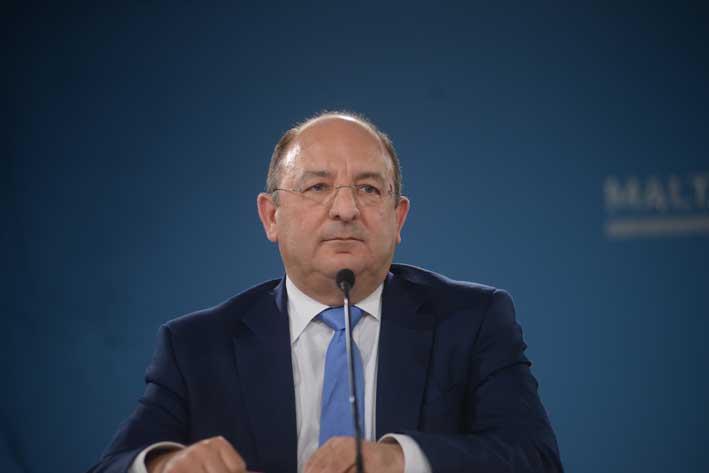Social Solidarity Minister Michael Farrugia finally brought forward the the Child Protection (Out of Home Care) Bill in Parliament this evening, after it was originally presented in 2014.
The Bill presents a wide range of changes to the child protection sector, however PN MP Robert Cutajar was not pleased with the way appointments to the new boards and directorships will be made.
On today's bill, Minister Farrugia stressed that social workers, the Agency for the Welfare of Asylum Seekers (AWAS), the Child Commissioner, foster carers, members of the judiciary, lawyers forming part of the Attorney General's office, parents who have children under a care order and others, were all consulted.
This Bill is an initiative to change present laws as to how children are protected, he said. "We cannot have a strong society if we do not have strong families... where children are given the necessary education and values needed to move the country forward".
"Families can come in different forms, but the children being loved is most important".
This law will remove the need for politicians, in this case the minister, to sign off on care orders, he said. "A minister must stay on reports brought to him, without being able to truly investigate each and every case."
A Director for the protection of Children will also be created, splitting the investigatory arm of Appogg, and will investigate any form of child abuse. He would hold meetings with the police, those in education etc. This Office will replace the Child Protection Services.

The Bill also dictates how reports should be made to the director and in fact, every single person will be responsible to report any suspicion that a child is suffering wrongdoing, such as negligence, abuse, abandonment and trafficking. "Once a report is received, the Director must decide within five days as to whether to investigate further or not. If the Director decides to investigate, then he will have a specified time period, which can be extended depending on the circumstances. If the Director then decides that the minor requires protection, then he will take action to provide that protection".
"As a principle, a child's place is with the family, and thus all must be done for the child to remain with the family", he said, adding that the law allows for certain actions which the director may take. The director can order courses for the parents, treatment abuse rehabilitation, and can also ask for care orders etc.
"As for care orders, the director would request such an order from the child's courts, which will be set up. The court must appoint a child advocate". The court will have the power to issue the following forms of care orders: A protection order where the child is removed from his current residence; a supervision order where the child continues to live with their parents but are supervised; a treatment order for the parent to seek treatment; a parent training order where parents would need to attend courses relating to their responsibility as parents; removal orders where someone who commits domestic violence and the child is removed; a special custody order, where a child being removed from his parents could remain with other family members.
As for foreign unaccompanied minors, a tutor will be appointed to gather professionals and entities who would be able to be involved in the care and protection of these minors.
Prior to the issuing of a care order, a care plan for the child must be created. The order will only be issued if the care plan is acceptable, and a permanent alternative plan must also be created which will be implemented if parents make no progress through their requirements in the care plan.

An Authority will be set up regarding care standards. Among its responsibilities, it will take care of registration of residential homes, ensuring services provides in this sector be according to standards.
The law also deals with a Fostering Agency.
This foster care unit will receive applications from those interested in being foster carers, and after training, would evaluate whether these people are capable of being such. Home study reports will then be made and sent to the Fostering Board. "Surveillance is important to ensure that the placement is to the benefit for the child, and this must be a priority".
Alternative care also includes residential care, he said. "This can at times be better than foster care for certain children."
"Children in alternative care will have the right to be consulted regarding decisions that affect him, to have access to information regarding the situation of his family members, to hold direct contact with parents unless it is not in the child's best interest, to receive medical care and psychological care, to have access to education, to decide on their own religion, to have their privacy respected, etc".
The law binds the minister responsible to provide a copy of the child's rights to these children in the language of their choice.
As for offences, he said that they have now been brought under one law for further transparency. As an example of an offence, arrangements for foster care without the established procedure being set up constitutes such an offence, and so is revealing the identity of children in alternative care either directly or indirectly.

PN MP Robert Cutajar said that it is positive that this Bill is finally being discussed, saying that the bill was originally presented 833 days ago by now President Mary Louise Coleiro. Minister Farrugia said the delays were necessary.
the PN MP mentioned a case which was reported in the papers, regarding a child who was forced to have sex with prostitutes by his father. Reports read that Appogg had taken the child into custody "but they had been unwilling to issue a care order because of a ministerial instruction not to issue any more care orders," the inspector had told the court. "Luckily the parents both consented to the boy being taken into care." Mr Cutajar noted that the minister did not mention it during his speech. "The ministry failed in its obligation to, if a care order was not issued, issue an interim care order".
Such a care order has two functions, he said, allowing social workers to investigate and further time for parents to appeal.
He highlighted that people on the boards would be appointed by the minister. "Why did you keep everything in your hands. We need an agreement where such positions are appointed by both sides. We have people who are in high positions regarding the protection of minors who are creating obscenities".